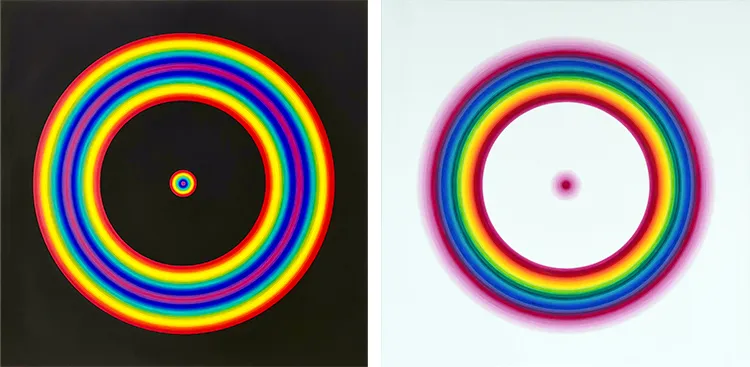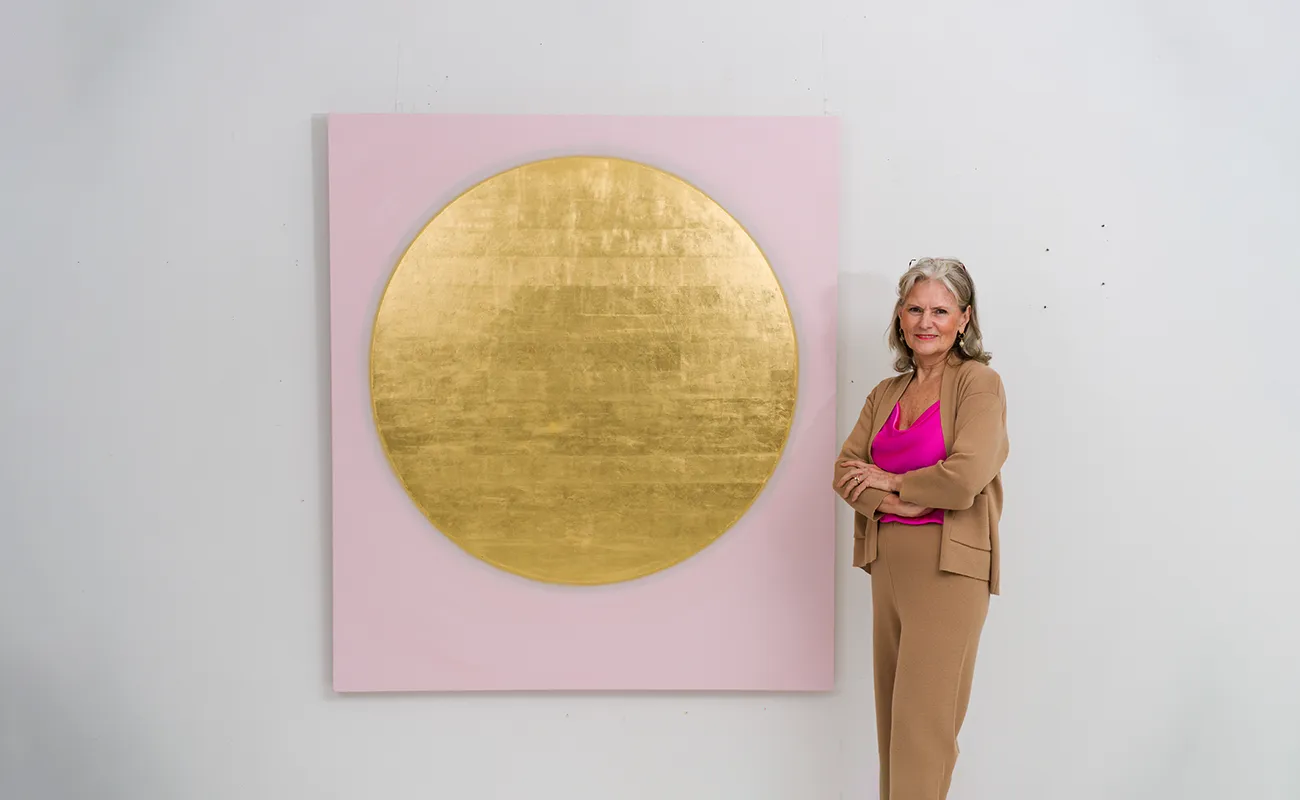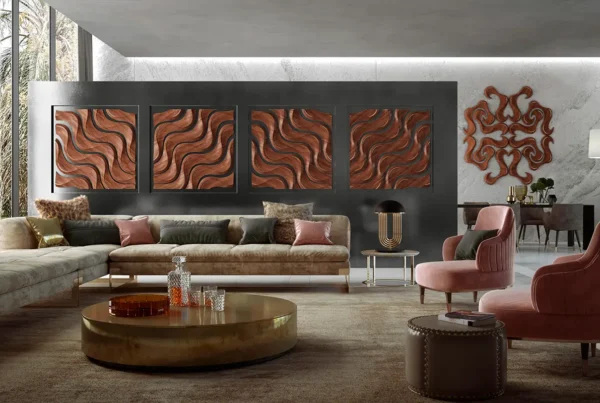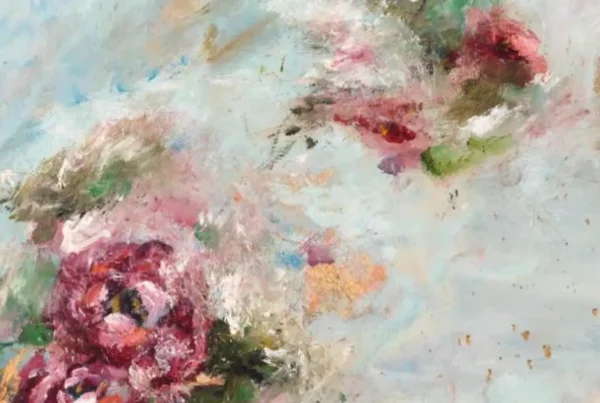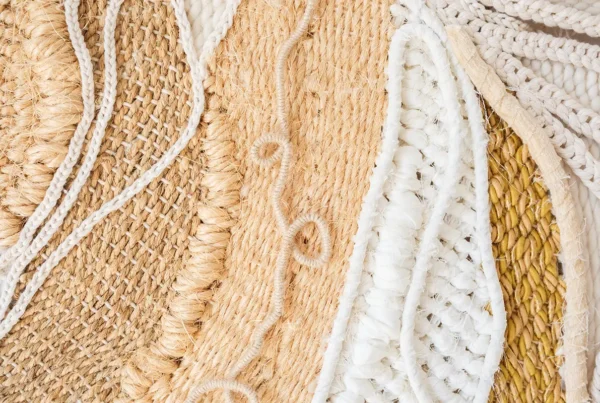“Colour itself had to be the medium of expression—its story told through how I applied it, how I brought different shades into conversation with each other, and how I revealed the energy within the colour.”
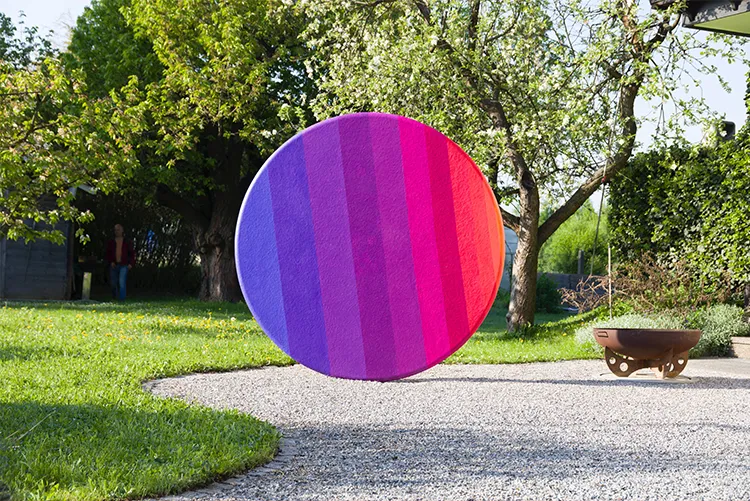
From Fields of Grapevines to Artistic Exploration
Ernestine Faux’s journey as an artist began in the most unlikely of places—a family of wine farmers in Austria, where creativity was neither immediately recognised nor nurtured. As a child, she was drawn to sketching her surroundings, instinctively translating the energy she felt into her drawings. Although her family dismissed her early talent, she was captivated by the powerful vibrations of life around her, even if she couldn’t yet articulate their significance. From the natural rhythms of the vineyard to the everyday interactions she observed, Ernestine’s early experiences shaped her growing connection to the unseen energies of the world.
A significant turning point came when her family moved to the city of Graz, giving Ernestine the opportunity to pursue her artistic passions. Accepted into Austria’s only fashion school, the Art and Fashion Hetzendorf in Vienna, she began to hone her technical skills while continuing to explore her fascination with energy and form. Although fashion design initially seemed like a practical compromise, Ernestine found herself captivated by the shapes, colours, and vibrancy of the human body. The energy she had always sensed became a central part of her creative process, driving her to express more than just visual beauty.
Her early education in haute couture laid the foundation for a career that would eventually transcend clothing. Through her work in fashion, Ernestine discovered that fabric could be as much a medium for art as paint or clay. This realisation paved the way for her transition from fashion designer to full-time artist, where she could fully explore her connection to energy, colour, and sound.
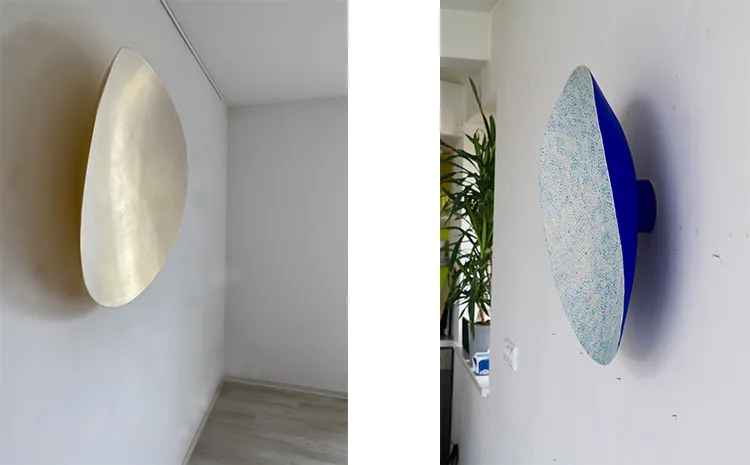
Ernestine Faux: A Life Shaped by Travel and Transformation
Ernestine Faux’s artistic career blossomed through her extensive travels, where each new culture and landscape provided fertile ground for her creativity. After completing her studies, she embarked on a fashion career that took her across continents—from Germany to Jordan, Zaire (now the Democratic Republic of Congo), and eventually to Bali. It was in these places that she became acutely aware of the energy fields around her, not just as abstract ideas but as tangible forces that shaped her artistic output.
In Bali, Ernestine’s deep connection to the spiritual and energetic qualities of the island marked a major turning point in her career. Here, she fully embraced life as a professional artist, leaving behind her career in fashion design. The island’s rich cultural and spiritual traditions unlocked new levels of inspiration for Ernestine, propelling her towards creating art that expressed more than just the surface beauty of the world. She began to see her creations as embodiments of the energy she had long sensed, using colour and form to communicate on a deeper, more metaphysical level.
As she divided her time between Bali and Europe, her work evolved into a blend of figurative and abstract explorations, each piece informed by the rich cultural experiences she had absorbed. Whether it was the geometric patterns of Middle Eastern architecture or the fluid forms inspired by Bali’s natural environment, each place Ernestine lived left an indelible mark on her creative process. This interplay between the visual, cultural, and spiritual worlds became a central theme in her work, guiding her artistic expression and infusing it with the energy she had come to recognise and channel.
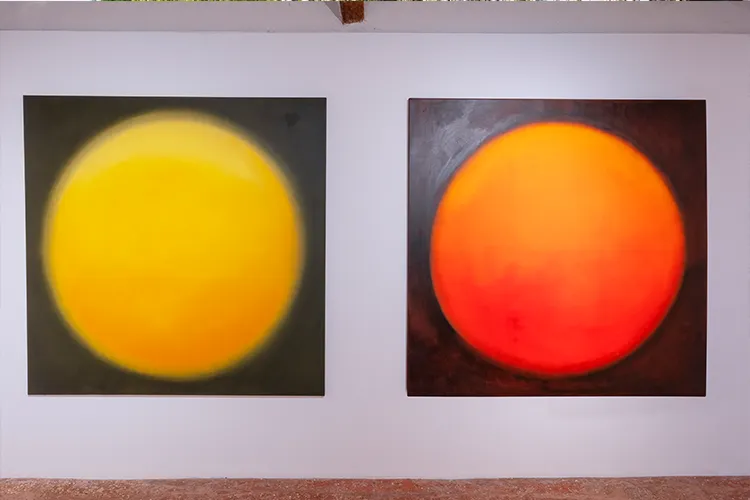
The Sound of Colour: Ernestine’s Visionary Fusion of Art and Sound
One of Ernestine Faux’s most innovative and profound projects is The Sound of Colour, a series of artworks exploring the interplay between sound, colour, and energy. This project is the culmination of years of research and practice, reflecting her belief that colour and sound are interconnected forces capable of shaping human experience. Drawing from her time in Bali, where she first encountered the healing vibrations of crystal quartz instruments, Ernestine began integrating sound into her artistic practice. These resonant tones mirrored the colours she painted, leading her to experiment with how sound could enhance the visual impact of her work.
In The Sound of Colour, Ernestine connects her paintings with specific sound frequencies, creating a multisensory experience for her audience. As viewers move through the space, they not only see the artwork but also hear the corresponding sound vibrations, offering a new dimension of engagement. For her, these sounds are not merely supplementary but an essential part of the artwork itself, resonating with the same energy that inspires her paintings. This concept is inspired by artists like Kandinsky, who also believed in the spiritual dimension of colour and sound.
At the Venice Biennale, held from April 20 to November 24, 2024, Ernestine reached a major milestone in her career. During a live performance, she played crystal quartz instruments tuned to the frequencies of her Chromatics series, creating an immersive, multi-sensory experience for attendees. By allowing visitors to hear sounds aligned with each color, she offered a profound connection to the energy embodied in her art. Below are two QR codes linking to music pieces composed specifically for the artworks Chromatics – Red and Chromatics – Yellow. Throughout the event, thousands of visitors have accessed these soundtracks by scanning the QR codes.
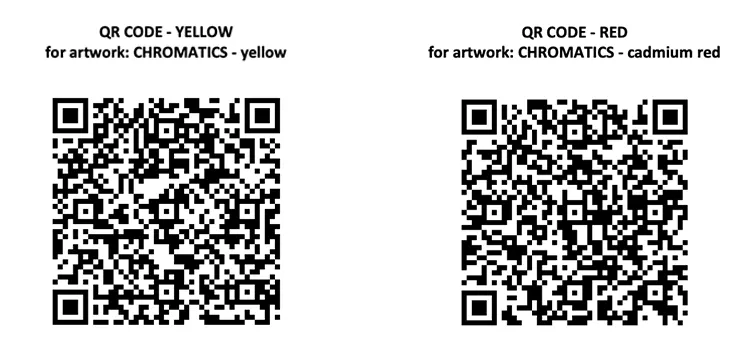
Ernestine Faux: Sculpting with Energy in Three Dimensions
Ernestine Faux’s artistic journey took a new turn when she began exploring three-dimensional work in the form of relief objects and sculptures. This evolution was spurred by her desire to express energy in a more tactile, physical way—an extension of the “walking sculptures” she had created through her fashion designs. Her early experiments with relief objects, particularly her concave and convex shapes, led her to the realisation that these forms could amplify the energy she sought to convey.
Her sculptures, often placed in outdoor environments, take on an almost monumental presence. Drawing from ancient traditions of stone setting, Ernestine places her works in a way that connects them to the elements, the sky, and the earth. These installations are not just visual statements but energetic ones, intended to enhance the environment in which they are placed. Her outdoor works aim to create a relationship between the visible and invisible forces that permeate the landscape, invoking a sense of harmony and balance in the viewer.
For Ernestine, colour is not merely a visual phenomenon; it is a source of energy, interconnected with sound frequencies that influence both physical and emotional well-being. Her use of three-dimensional forms allows her to shape this energy in new ways, providing a tangible experience of the forces she has long sought to capture in her paintings. Through her work, she invites viewers to engage with art not only as a visual experience but as a means of reconnecting with the deeper vibrations that shape our lives.
